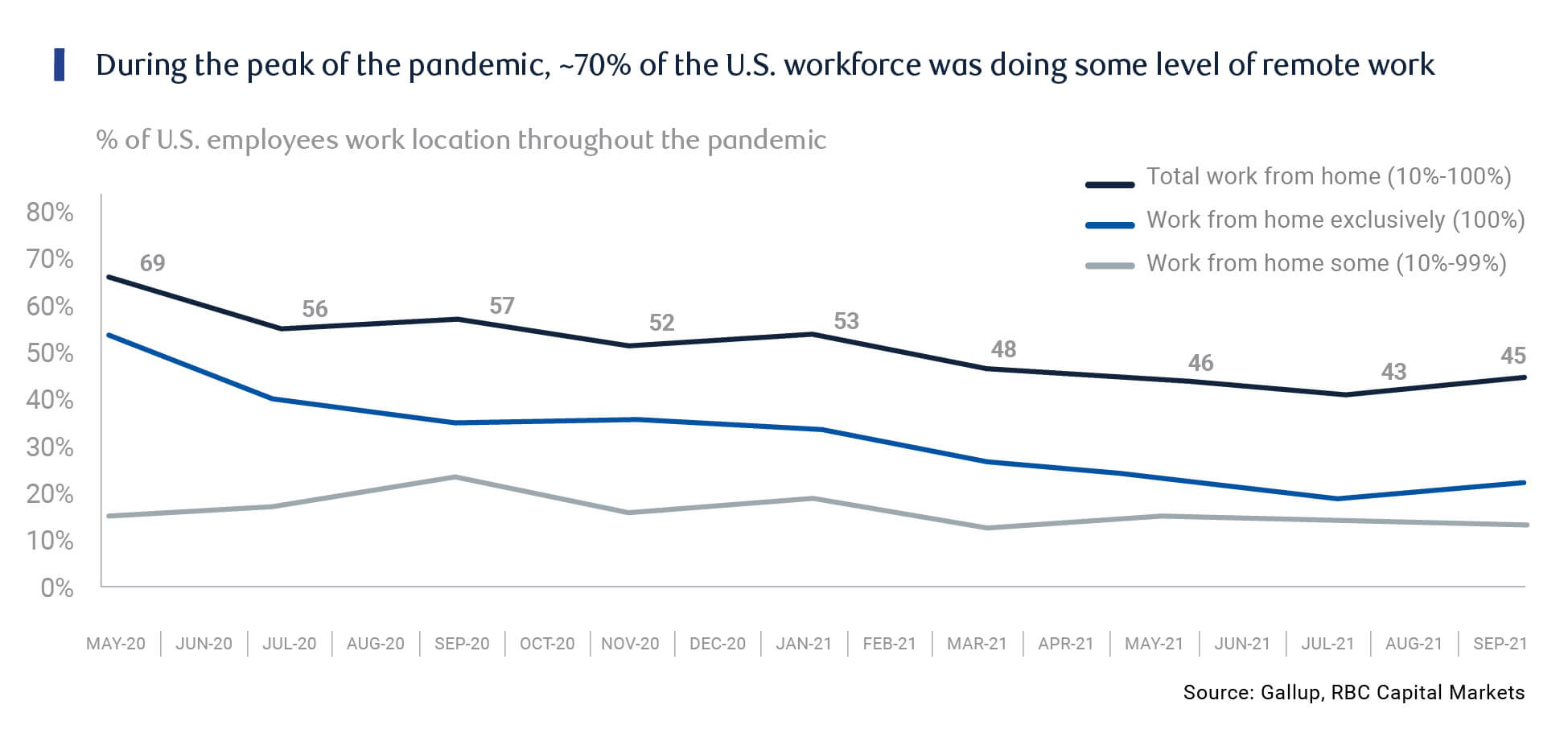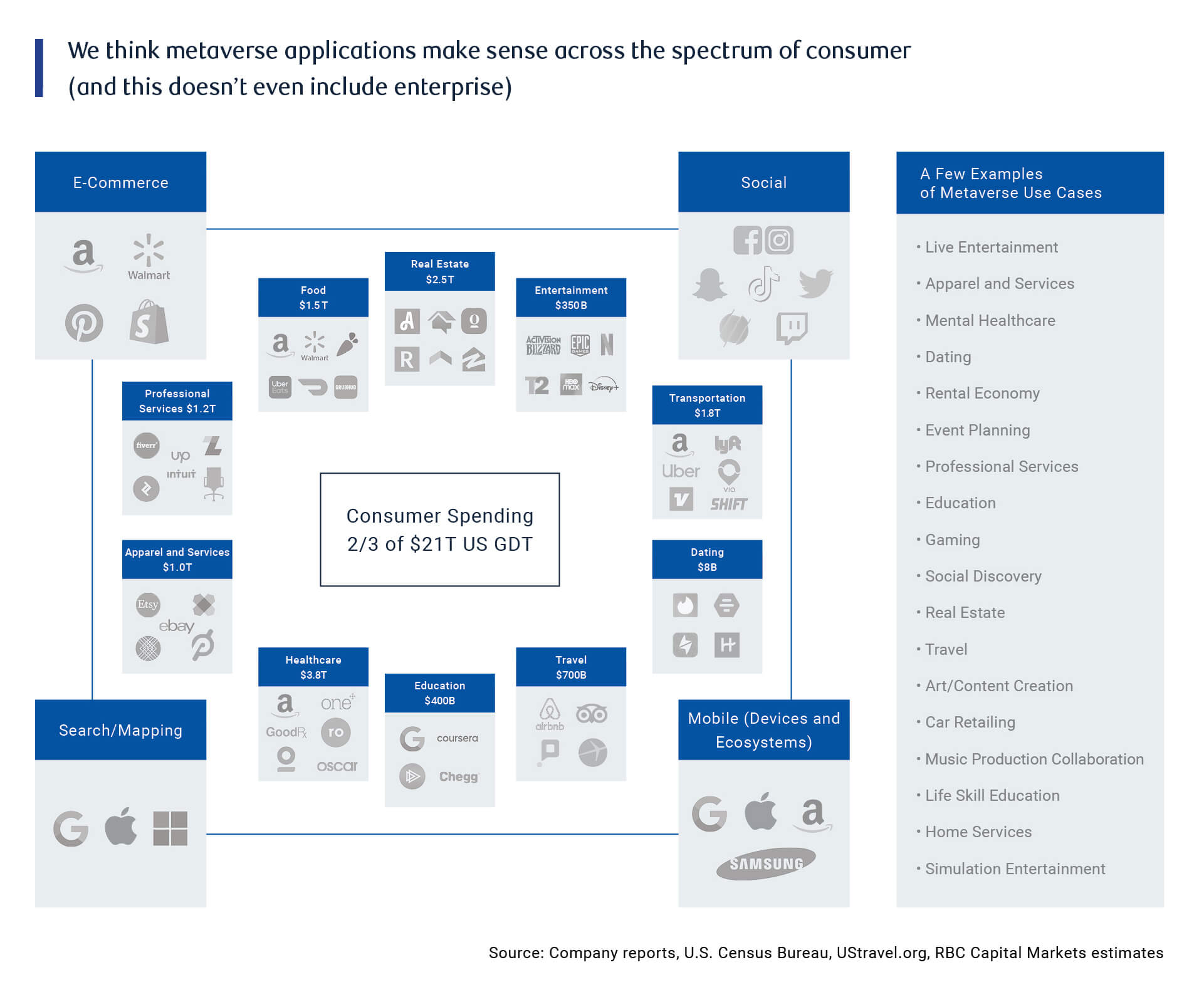Key Takeaways
- We have already started to embrace hybrid living, the start of a journey that will accelerate workplace productivity and create new opportunities for businesses.
- Hybrid work is here to stay, although there will be more than one version of a hybrid worker, often even within the same company.
- Augmented realities will continue to evolve, powering the transformation of the internet into the metaverse, with profound consequences.
- Tech titans will have an advantage when attempting to compete for interconnected metaverse market dominance.
A physical and digital life
In every sphere of life, we are already engaged in hybrid living — a novel era of mediated reality that will create new opportunities to engage consumers and create new business models. Millennials and each successive generation are comfortable with technology being embedded in their everyday life, creating online communities that take up a significant portion of their social activities.
It’s tempting to believe that COVID-19 was the catalyst for this new trend in hybrid living, but in reality, it was merely an accelerator. In a 2016 survey, YPulse found that more than 70% of millennials would rather stay home than go out on the weekend, and that 80% of 21 to 33-year-olds would rather give up drinking for a week than give up their phones.
“A new era of mediated reality could begin to rival, and in some instances substitute, the real world.”
Drew McReynolds
Telecommunications & Media Analyst, RBC Capital Markets
Hybrid work

The future of work is hybrid, but hybrid work will mean different things to different companies and workers. True hybrid work is where employees work in the office two to three days per week and work remotely for the remaining two to three days.
There will also be fully remote models with either no requirement for employees to be in the office consistently; or virtual-first, where most employees work from home most of the time, but teams are encouraged to use offices for tasks that require in-person collaborative group work.
The metaverse
We see the metaverse as the logical next step in the evolution of the internet, and we believe its economic, social, cultural, political and environmental impacts will be nothing short of profound. For the companies who believe the same, there are similar determinants of success as there were on the internet, which could see the metaverse colonized by just a few ecosystem providers.
Today’s tech titans already possess large audiences that would provide meaningful tailwinds to metaverse adoption, and the ability to tie data from existing platforms like search and social will also be favorable.

Early forays into the metaverse will do well to consider two core characteristics. The digital experience has to reasonably approach the equivalent physical experience without being less efficient, so it should be no more difficult to digitally find new books in the metaverse than buying them online, for example. There will also have to be a commercial aspect to the activity – education, gaming and leisure activities are the obvious ones. But there will also be room for commercial applications like manufacturing, robotics, real estate, dating, travel, home services, car retailing and many other use cases across other enterprise and professional services applications.
“In our view, equity value creation in the emerging metaverse is likely to come from companies pursuing a ‘walled garden’ approach, as opposed to those with a blockchain/open-source platform structure.”
Brad Erickson
Internet Analyst, RBC Capital Markets
There are many more areas where services and/or work can be delivered virtually. Virtual elder care, health monitoring and telehealth, for example, or remote operation for hazardous or unpleasant work sites, such as oilfields and mines. This new digital space will also have a significant impact on how we use and create physical spaces, as people do more at home.
We believe the temporary race for space during COVID-19 lockdowns is likely to be a slow, but steady long-term trend, only partially offset by less need to store as many physical possessions in a digital world. More affordable (and thus often less accessible) locations could potentially increasingly gain favor, assuming digital connectivity is sufficient.
